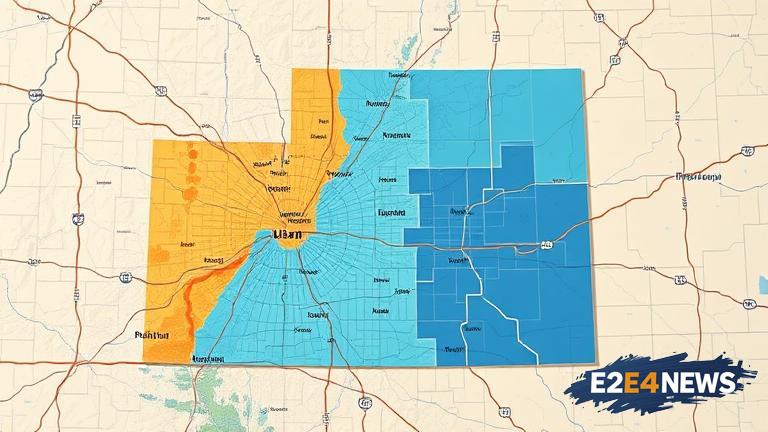In a significant development, a Utah judge has ruled that the state’s congressional maps are unconstitutional, paving the way for a potential redraw of the district boundaries. This decision has sent shockwaves through the state’s political landscape, with many analysts believing it could create an opportunity for Democrats to gain a foothold in the traditionally Republican-dominated state. The ruling, which was handed down on August 26, 2025, found that the current maps violate the state’s constitution by unfairly favoring Republican candidates. The judge’s decision has been welcomed by Democratic lawmakers, who have long argued that the current maps are gerrymandered to benefit their Republican counterparts. With the ruling, Democrats may now have a chance to compete in districts that were previously thought to be unwinnable. The Utah Democratic Party has expressed optimism about the ruling, stating that it could lead to a more representative and fair electoral process. However, Republican lawmakers have vowed to appeal the decision, arguing that the judge overstepped their authority. The ruling has also sparked a heated debate about the role of the judiciary in shaping the state’s electoral landscape. As the appeal process gets underway, all eyes will be on the Utah Supreme Court, which will ultimately decide the fate of the congressional maps. The court’s decision will have significant implications for the state’s electoral future, with potential consequences for the balance of power in the US Congress. The ruling has also highlighted the ongoing issue of gerrymandering in the United States, with many arguing that the practice undermines the democratic process. In Utah, the issue has been particularly contentious, with Democrats arguing that the current maps are designed to dilute their voting power. The judge’s decision has been seen as a major victory for voting rights advocates, who have been pushing for fairer and more representative electoral districts. As the state moves forward with the redrawing of its congressional maps, there will be intense scrutiny of the process to ensure that the new boundaries are fair and representative of the state’s diverse population. The ruling has also sparked a renewed focus on the importance of independent redistricting commissions, which are designed to take the politics out of the map-drawing process. In Utah, there have been calls for the state to adopt such a commission, in order to prevent future disputes over the fairness of the electoral maps. The decision has also highlighted the critical role that judges play in shaping the electoral landscape, with many arguing that the judiciary is the last line of defense against partisan gerrymandering. As the appeal process continues, it remains to be seen how the Utah Supreme Court will rule, but one thing is certain – the outcome will have significant implications for the state’s electoral future. The ruling has sent a signal to other states that the judiciary is willing to intervene in cases where electoral maps are found to be unfair or discriminatory. This could have far-reaching consequences, as other states with similar disputes over their electoral maps may now be more likely to see judicial intervention. The Utah case has also highlighted the importance of civic engagement and activism in shaping the electoral process. Voting rights advocates and Democratic lawmakers have been credited with pushing for the ruling, and their efforts have paid off. As the state moves forward with the redrawing of its congressional maps, it is likely that there will be intense scrutiny of the process, with many advocating for a more transparent and inclusive approach. The ruling has also sparked a renewed focus on the importance of electoral reform, with many arguing that the current system is in need of overhaul. In Utah, there have been calls for reforms such as ranked-choice voting and independent redistricting commissions, which are designed to make the electoral process more representative and fair. The decision has also highlighted the critical role that voters play in shaping the electoral landscape, with many arguing that it is up to citizens to demand fairer and more representative electoral districts. As the state moves forward with the redrawing of its congressional maps, it is likely that there will be a renewed focus on voter engagement and participation, with many advocating for increased turnout and civic engagement.




